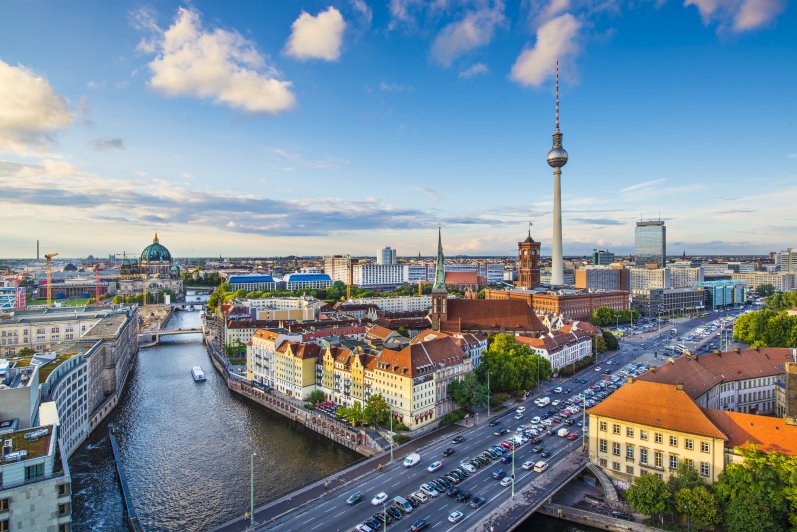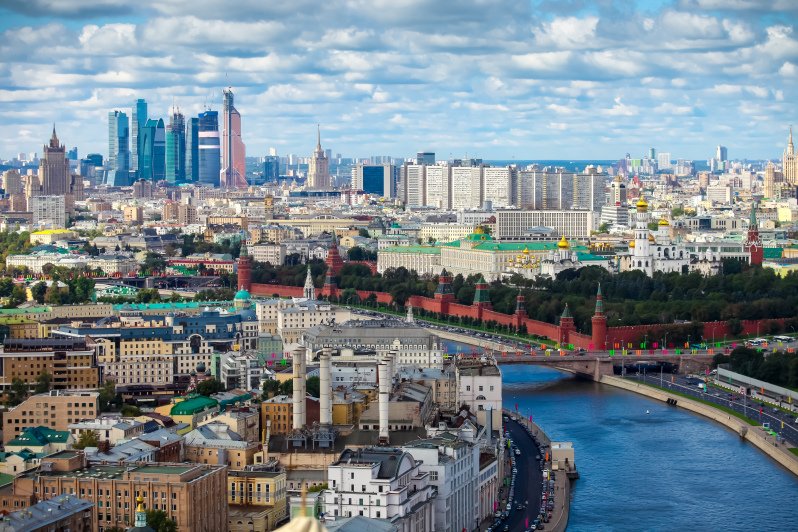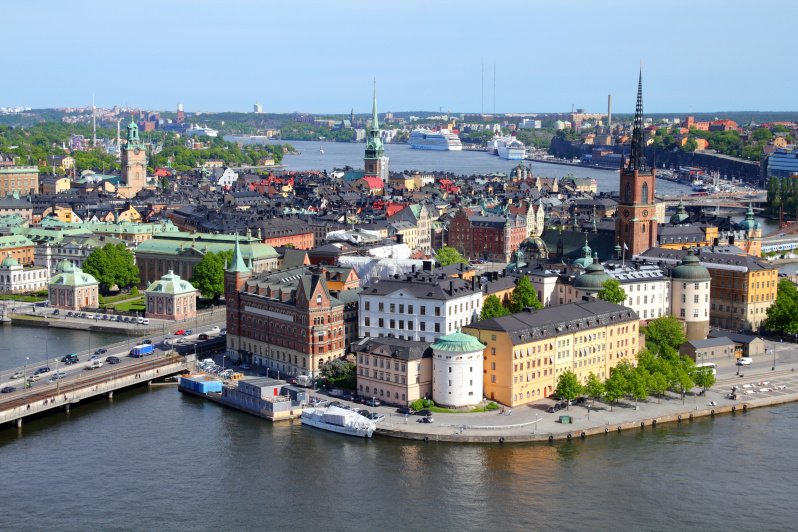(Editor's note: this article was written by tech.eu in connection with a partnership with the upcoming Le Web conference in Paris, and was cross-posted on their blog.)
At the upcoming LeWeb conference in Paris, I'll be co-hosting the European Forum, a series of sessions on the Eiffel stage that will shine a light on six of Europe's top 'startup nations'.
You can see the full LeWeb programme here, but essentially we'll be dedicating the morning of Thursday 11 December to highlighting the opportunities and challenges of the booming tech ecosystems in the UK, Israel, Germany, France, Russia and Sweden.
In the lead-up to the event, I wanted to focus attention on some of the specifics of said ecosystems, and categorise them under 'the good, the bad and the ugly'. It's important to note that this is a mix of facts and opinions based on my own observations, alongside feedback from a good number of local industry insiders. You're free to disagree; in fact, the comment floor is all yours.
Israel

The Good
- Entrepreneurship is in Israelis' DNA and heavily ingrained in their culture - An inherently small market means Israeli entrepreneurs are forced to think international from day one - Access and experience comes 'cheap': Israel has its army, boasts lots of startups and is home to many a big tech multinational - this means lots of opportunities for the willing - Israel has seen a fair share of built-to-last tech companies and exits, so there is a high degree of maturity - Funding isn't particularly hard to come by, especially in the seed stage, although bootstrapping remains the norm for many startups - As one insider noted: "In Israel, it genuinely is OK to fail."
The Bad
- The abundance of startups, technically well-trained and entrepreneurially-minded people means it can be hard to recruit and retain talent - The above also creates a lot of noise and a fair share of 'wantrepreneurs' - Although this is changing, Israeli startups all too often go for the quick exit - Having to go international from the start also translates to early operational and financial challenges - Government support undoubtedly exists, but is often misplaced and channeled inefficiently - Consumer-facing startups launching in Israel first often face an ugly, unnecessary death
The Ugly
- Founders are prone to lose a lot of equity in early-stage funding rounds, even if it's through government-backed programs - Israeli startups typically get funded in Dollars but pay salaries in Shekels - Government regulations often slow down adoption or even import of any hardware-related tech - Though there is a strong general sense of community and sharing in Israel, one insider observed that not everyone is naturally supportive of one another
United Kingdom

The Good
- Mature ecosystem that is home to several major tech companies and a entire generation of promising new startups - Epicentre of the European VC, investment and banking industry and home to a massive concentration of angel investors, seed funds and international accelerators - Heaps of government support, sometimes misplaced but often helpful (Tech City etc.) - Tons of international technology companies (and other big multinationals) have offices in London, making partnerships and acquisitions more likely - A few big exits have resulted in liquidity for and increased activity from both founders and their investors, angels and VCs alike - London has traditionally been a good 'bridge' for tech companies looking to break into the large US market, and has made a lot of efforts in attracting overseas companies to set up shop in the city as well - A few strong sectorial clusters, most notably fintech (TransferWise, GoCardless, Nutmeg, FundingCircle etc.) and 'e-commerce' (Net-A-Porter, AO, Farfetch, Lyst etc.)
The Bad
- Fierce competition for technical talent: big corporations, startups and non-tech multinationals all fighting for the same people, which is driving up salaries fast - Shortage of affordable office space; incubators and co-working spaces have more demand than they have room, and growing tech companies have a hard time finding bigger spaces to rent
The Ugly
- High cost-of-living compared to most of the rest of Europe - Lots of noise: plenty of meet-ups and physical hubs in London that don't really add value
France

The Good
- The French government listens or is at least learning to listen to tech startups - France has a dedicated minister to digital (Axelle Lemaire) and even has a brand (La French Tech) meant to promote French startups internationally - Experienced and entrepreneur-friendly investors make for a solid seed funding and VC ecosystem, and foreign investors regularly hunt for opportunities in France - France boasts a strong community with plenty of co-working spaces, accelerators, 'office hours', meet-ups and a couple of large internationally-focused conferences - It's not just Paris: regions like Lille, Nantes, Lyon, Grenoble, Toulouse, Bordeaux and so on are developing solid networks and establishing themselves as vibrant startup hubs - Key people with ambitious dreams, chief among which is Xavier Niel with his Ecole 42 coding school, 1000startups incubator and seed investment firm Kima Ventures - Entrepreneurship is becoming trendy in France, with digital startups and key people regularly getting featured in mainstream media, including on television - France is home to internationally acclaimed engineering talent and top business schools
The Bad
- In France, certain 'sectors' are very independent from each other. For example, people who work for the government have all gone to l'Ecole Nationale de l'Administration and they have only worked in the public sector - and tend to therefore be rather removed from the world of startups and business - As other countries have introduced programming into the national curriculum and for K-12, France needs to catch up when it comes to tech education - The tide is changing, but the general perception of the French towards 'doing business', making a lot of money and failing at ventures is still rather hostile - La French Tech is a good brand / initiative but there needs to be more collaboration with other programs such as TechCity in the UK, etc. - French government has a tendency for volatility and slowness when it comes to making changes
The Ugly
- Like in Israel, because entrepreneurship and 'doing startups' is becoming hot there is an increasing amount of noise and 'wantrepreneurs' - The French continue to be obsessed with 'entrepreneurs leaving France' rather than who is coming over (both founder and investors) - A constant urge to compare the local ecosystem with the US, UK and/or Germany
Germany

The Good
- Young but fast-maturing ecosystem(s) where entrepreneurship takes center-stage - Particularly in Berlin there's a very international atmosphere with lots of expats being attracted by the city's vibrance, creating a pool of diverse talent with plenty of foreign language skills - Compared to most major European cities, office and living space is very affordable in German cities like Berlin, Cologne and Hamburg - Strong desire for Germany-based founders to build global businesses (examples aplenty, but some well-known names are SoundCloud, Wooga, ResearchGate, EyeEm, 6Wunderkinder, Delivery Hero etc.) - Berlin in particular enjoys lots of attention from big tech multinationals (e.g. Google Campus @ Factory) and international investment firms - Berlin's artistic image has a gravitational pull on creative people (designers, UX specialists etc.) - Thought it took time for politicians to notice, German government officials are increasingly pushing new initiatives, taking an active interest in startups, and taking measures to improve conditions
The Bad
- Fierce competition for talent, particularly for technical and senior management people, especially as massive companies like Rocket Internet and Zalando ramp up operations across the board - Some of Germany's most-hyped startups have resulted in relatively small acquisitions (e.g. Gidsy, Amen, Moped, JustBook etc.), leaving observers wondering when there will be some really big exits - Because entrepreneurship and 'doing startups' is hot, there are a good number of me-too startups and wantrepeneurs coming out of Germany, giving credence to the notion that German companies are good at cloning successful businesses from elsewhere (whether true or not) - Local VC scene is still very much developing and nowhere near 'mature' - Disconnect between large tech companies like SAP, Siemens, Deutsche Telekom and the startup world, although this is rapidly changing
The Ugly
- Disconnected clusters and the perceived 'competition' between major German cities hinders collaboration and knowledge exchange between regions - High degree of bureaucracy and red tape sometimes slows startups down - Not exclusive to Germany, but boy is there a lot of media hyping going on - Some argue that Berlin can actually be too fun
Russia

The Good
- Big domestic market so companies can scale up even if only targeting Russian-speakers - Lots of capital available; even the old 'oil' money is increasingly invested in tech - Abundance of technical talent and solid education in STEM fields - Fast-growing digital economy and e-commerce market - Very high degree of smartphone penetration and a huge online population - Relatively cheap to attract and retain talent
The Bad
- Capital in spades but not enough 'smart money' available - Big domestic market but it's very difficult for large tech companies to expand or scale abroad - For better or worse, foreign investors continue to shun Russia for being 'risky' - Government can be too involved in the startup scene, particularly at the seed stage, rather than invest in support programs or improving fundamentals / infrastructure - Russians have traditionally lacked a culture of entrepreneurship
The Ugly
- The geopolitics of the Russian government has a negative impact on business - enough said - Legislation in Russia is exquisitely complex and paper-based, often requiring battalions of lawyers and accountants - Russia has strict (and constantly more) laws regulating Internet and media usage - Subpar basic infrastructure, from roads to decent broadband connections, let alone speeds
Sweden

The Good
- Like in Israel, the domestic market is too small for entrepreneurs not to think internationally from the day they start building their companies - Scandinavians, in general, have high work ('heads down') ethics and diligence (+ underdog attitude) - Sharp technical skills developed thanks to solid education and hobbies (which is often attributed to the darkness in Swedish winters) - Overall good English language skills - many startups have English as their #1 language which makes it easier to market internationally, and to attract talent from abroad - High output of world-class tech companies per capita: experience and role models aplenty - Stockholm in particular has solid clusters in given categories (Spotify, Auxy, Teenage Engineering etc. in 'music', Klarna and iZettle in 'fintech', Minecraft and King.com in 'gaming' etc.) - Public funding and government support plays an instrumental and generally positive role in the Swedish startup ecosystem - Swedish corporations are increasingly taking an interest in the startup scene
The Bad
- Like in Israel, the small size of the home market also brings challenges - Family often comes first, which isn't bad in itself of course, but it's important to note that Scandinavians in general like to work not much longer than 'regular' office hours - Long summer holiday period which sometimes leads to not much being done for a period of up to 10 weeks - Limited number of top-tier VCs - sizeable A and especially B-C funding rounds come from abroad - and not nearly enough experienced angel investors offering 'smart' seed money - A lot of the top talent gets scooped up by deep-pocketed consulting companies and financial institutions
The Ugly
- Especially at the seed stage, valuations for funded Swedish startups tend to be low, giving founders a disadvantage when seeking follow-on funding - Everywhere in Europe, physical hubs - co-working spaces, incubators and whatnot - are mushrooming, yet it took Stockholm a long time to get those (SUP46 is one but only a year old) - Not a very close-knit tech community - still a lot of disconnect between entrepreneurs (especially 'older' vs. 'younger'), sectors and the various startup 'entry points' - Lack of government-sponsored incentives for starting up - Poor tax conditions
Featured image credit: Harvepino / Shutterstock


